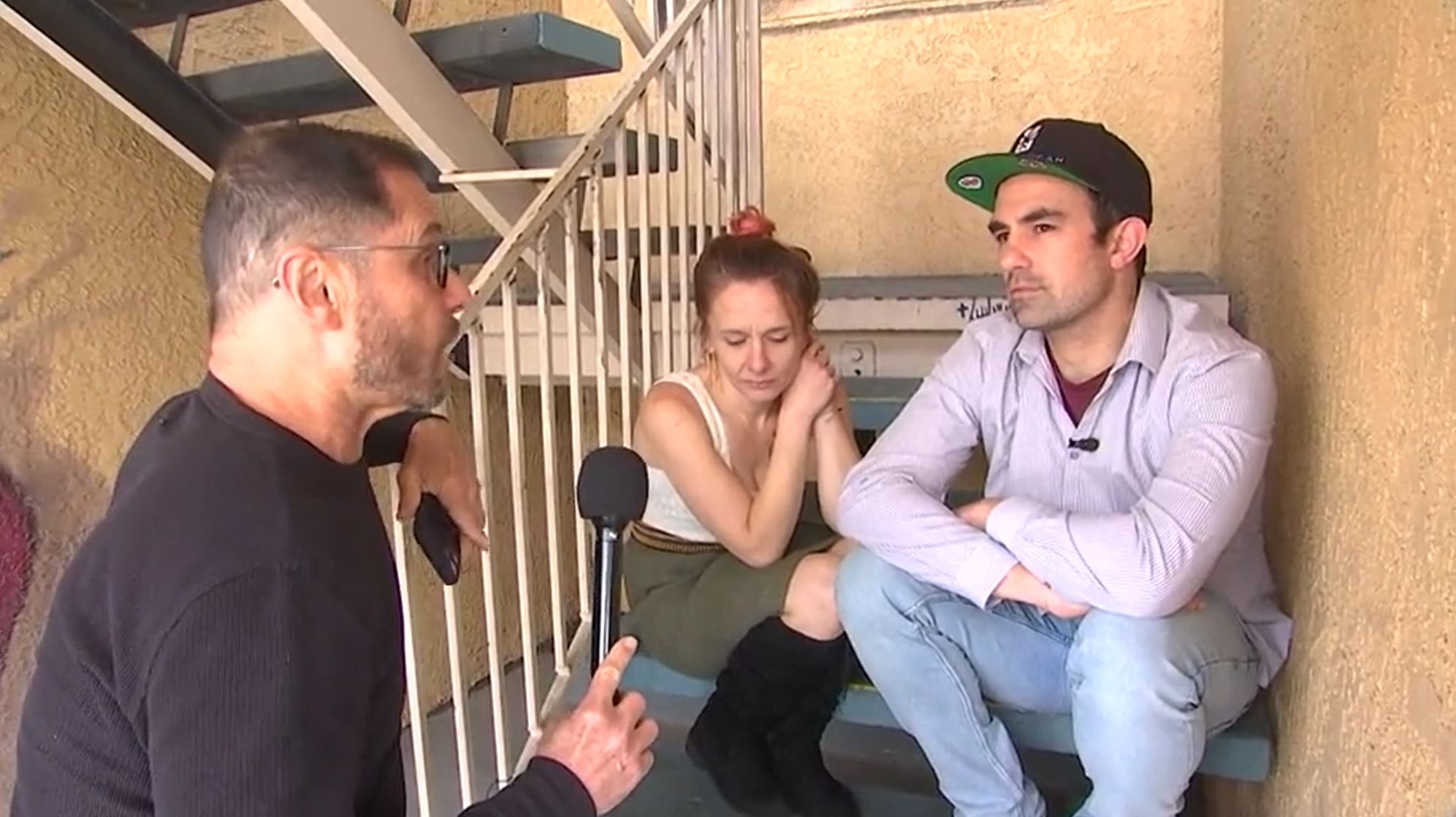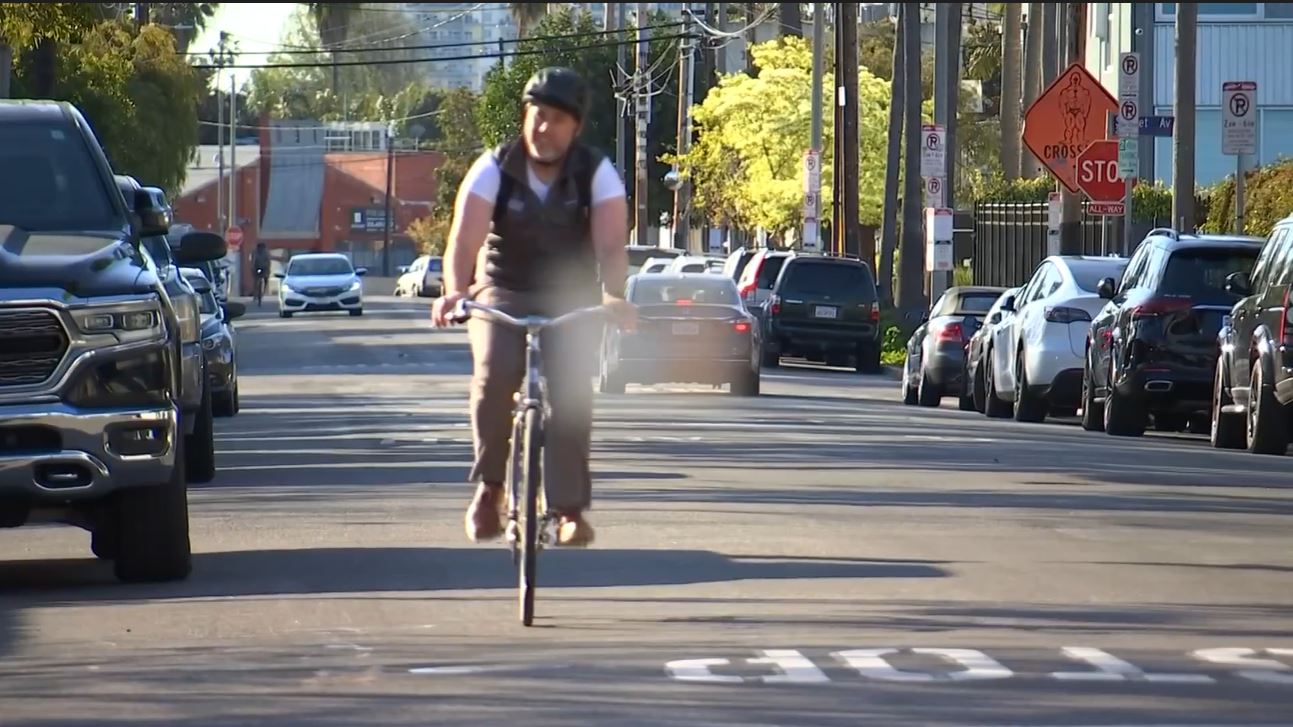After spending years living in a tent in an encampment on 3rd Street in Venice, the city of Los Angeles moved Kittie Plant and her boyfriend Thomas Schacht into a motel last January, with the promise of finding them a permanent apartment.
But the motel room they got at the Los Angeles Inn in South LA has mold on the ceiling, bathroom pipes that leak and an air conditioning unit falling off the wall.
"I can promise you we had better accommodations on 3rd Street in a tent than they're making for us here," Plant told the NBC4 I-Team.
Get top local stories in Southern California delivered to you every morning. Sign up for NBC LA's News Headlines newsletter.
Plant and Schacht are among the 1,200 unhoused people the city has temporarily moved into motels as part of LA Mayor Karen Bass' "Inside Safe" program, an effort to dismantle encampments across the city and help the homeless build lives off the streets.
"Our toilet got clogged, our sink is clogged, the ceiling is molding," Plant said.
The I-Team contacted the manager of the Los Angeles Inn to discuss the costs and conditions of the rooms. He said he didn't want to comment.
The city of LA is paying millions of dollars each week to house the homeless in motels.
Plant and Schacht say they have to sign invoices every month showing the city is paying $3,600 a month for their motel room.
At the Sahara Motel, the city is paying $4,100 a month for a room in good condition for Faith Stephens, who was moved there from an encampment on Culver Boulevard. The monthly amount for her motel room is costlier than many one-bedroom apartments in places like West LA or Studio City.
"I could be in a real apartment for that kind of money. A real one-bedroom apartment in Santa Monica, a deluxe apartment," said Faith Stephens.
Mayor Karen Bass admitted in an interview to the I-Team that the motel costs are high.
"This is not financially sustainable," Bass said.
Bass explained that the city agreed to pay the hefty motel rates to get the homeless off the streets quickly after she took office.
"We are doing it this way because from the point of view of most Angelenos, we have an emergency on our streets and people need to get off the streets and into housing ASAP," Bass told NBC4.
Bass is budgeting $250 million next year to fund Inside Safe, but hopes to trim the high cost of renting motels.
"So we're coming up with another way to provide housing, which is for us to enter into purchasing, essentially, motels and hotels. And needless to say that takes a while," Bass said.
As for the conditions at the Los Angeles Inn, like moldy ceilings and leaking pipes, Plant and Schacht would like the mayor to come visit.
"I think she might even need to stay the night in one of these so she can see what we're staying in right now," Plant told NBC4.
Bass told NBC4 she will visit the motel to see those conditions.
"The fact of the matter is when we find out the conditions are so poor, we will move the individuals. We will look for other motels," Bass said.
Most of the 1,200 homeless people moved off LA's streets since January by the Inside Safe program remain in motels because, they say, no one is helping them find permanent apartments.
Those unhoused say when they were asked to leave their encampments, they were promised a case manager would be assigned to help them find an apartment and get needed services, but that hasn't happened for many.
"I've had three different people come up to me and tell me they're my case manager, and I haven't really met with any of them," Schacht said.
But he remains hopeful that the kinks will be worked out of the Inside Safe program and he'll eventually get an apartment and a new life off the streets.
"I think it's an amazing idea and an amazing program that they have. I want to see it through. And they have my full cooperation," he said



